Before you leave...
Take 10% off your first order
10% off
Enter the code below at checkout to get 10% off your first order
Call us at 77778586 or Live Chat 👇
Free shipping above €20
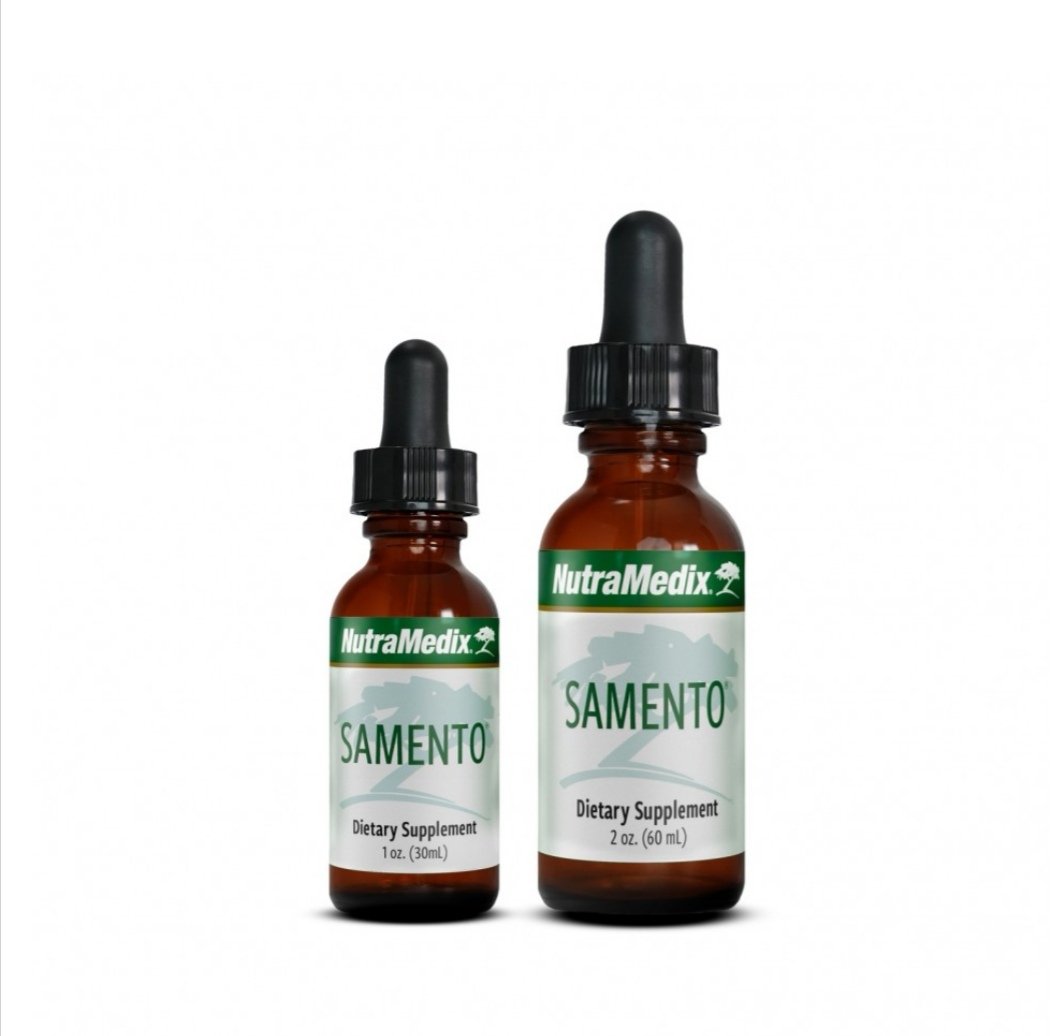
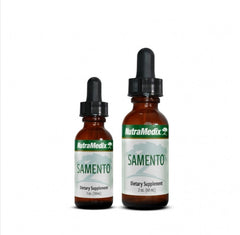
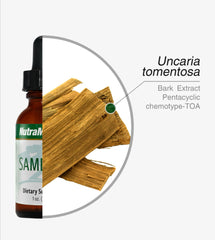
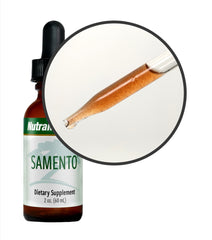
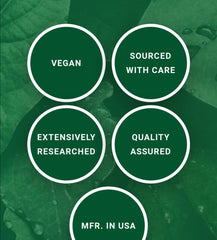
Couldn't load pickup availability
Free standard shipping on orders above €70 in Cyprus
Estimated to be delivered within 1 to 4 working days.
You may return most new, unopened items within 30 days of delivery for a full refund. We'll also pay the return shipping costs if the return is a result of our error (you received an incorrect or defective item, etc.).
You should expect to receive your refund within four weeks of giving your package to the return shipper, however, in many cases you will receive a refund more quickly. This time period includes the transit time for us to receive your return from the shipper (5 to 10 business days), the time it takes us to process your return once we receive it (3 to 5 business days), and the time it takes your bank to process our refund request (5 to 10 business days).
If you need to return an item, simply login to your account, view the order using the "Complete Orders" link under the My Account menu and click the Return Item(s) button. We'll notify you via e-mail of your refund once we've received and processed the returned item.
TO RESOLVE:
Awareness is growing that the rainforests are one of the world’s greatest natural resources. Based on current knowledge, it is estimated that the rainforests contain 170,000 of the world's 250,000 known plant species, and more are still being discovered. Continuing scientific studies are revealing many to be greatly beneficial for a broad number of medicinal uses.
As you will find in the study abstracts that follow, one of the most unique in its diversity and potential in medicinal applications is SAMENTO, also known as TOA-Free Cat's Claw. SAMENTO is a rare chemotype of the medicinal plant commonly known as Cat's Claw, Uncaria tomentosa.
Samento was approved as a medicine in Ecuador in 2004. Government officials have allowed 3 drug claims to be used: anti-inflammatory, antimicrobial and immune system modulator. The Hungarian National Institute of Pharmacy (OGYI), the Hungarian equivalent of the FDA in the US, also approved SAMENTO in 2001 as paramedicament (OTC) pharmaceutical preparation as a “sole or adjunct therapy for rheumatoid diseases, arthritis, and locomotor conditions. It is also approved as a sole or adjunct therapy to enhance immune system function.”
Unlike traditional Cat's Claw products, the SAMENTO chemotype does not contain Tetracyclic Oxindole Alkaloids (TOAs), a group of chemical antagonists that act upon the central nervous system and can greatly inhibit the positive effect of the Pentacyclic Oxindole Alkaloids (POAs). The POAs primarily affect the immune cells responsible for nonspecific and cellular immunity and demonstrate powerful immune system modulating properties. According to research conducted in Austria, traditional Cat's Claw products may contain as much as 80% TOAs, and as little as 1% TOAs can cause a 30% reduction in the immune system modulating properties that POAs provide.
As a result of these phytochemical differences between SAMENTO and Cat's Claw, SAMENTO can be safely used in a broader range of medical conditions. Cat’s Claw acts as an immune system stimulant making it contraindicated in patients with autoimmune disorders, whereas SAMENTO is an immune system modulator. For this reason, SAMENTO can be used to treat all autoimmune disorders.
TOA-Free Cat’s Claw (SAMENTO) and isolated POAs such as mitraphylline, isomytraphylline, isopteropodine, and pteropodine continue to show promising results as they have been studied. The studies below reveal the exciting potential for the use of SAMENTO in various applications.
ANTIBACTERIAL
ANTICANCEROUS
ANTIDEPRESSANT
ANTIFUNGAL
ANTI-HYPERTENSIVE
ANTILEUKEMIC
ANTIMUTAGENIC
ANTI-OXIDANT
ANTIPARASITIC
ANTIPARKINSONISM
ANTI-ULCEROUS
ANTIVIRAL
CYTOSTATIC
DEPURATIVE
DIURETIC
VERMIFUGE
POA POTENT & TOA FREE - In 2000, Nutramedix introduced a rare type of Cat's Claw (Uncaria tomentosa) that does not contain the tetracyclic oxindole alkaloids (TOAs) that are found in traditional Cat's Claw. This coveted vine is a source of POA (pentacyclic oxindole alkaloids).*
PROPRIETARY WHOLE HERB EXTRACTION PROCESS - Highly bioavailable liquid for improved absorption. Nutramedix’s unique enhancement process optimizes the whole herb for a more powerful broad-spectrum concentration.*
FEEL THE DIFFERENCE - Put 1 to 30 drops in 4 oz. of water and wait one minute before drinking. Start with 1 drop twice daily (30 min. before meals) increasing slowly up to the 30 drops twice daily or as directed by your physician. Do not use if pregnant or nursing. Shake well before each use.*
OVER 20 YEARS OF NUTRACEUTICAL INNOVATION - Founded in 1993, Nutramedix supplies highly bio-active nutritional supplements to health care professionals and consumers. A majority of Nutramedix profits are donated to charitable organizations.
Priyanka A.S. Theophilus M.S., Eva Sapi Ph.D. (2013). In Vitro Effect of Peruvian Antimicrobial Agents on Borrelia burgdorferi Full Article
IN VITRO – ANTITUMOR EFFECT
I. Urdanibia, O. Estrada, P. Taylor (2007). The antitumor effect of Samento, pentacyclic chemotype of Uncaria tomentosa, is probably due to its anti-inflammatory activity. Full Article
Establishment of the Potential Anti-inflammatory Effect of the product known as Samento. The study demonstrated that Samento had a marked anti-inflammatory effect and was 86% as effective as Feldene, a non-steroidal anti-inflammatory drug also known as PIROXICAM. University of Guayaquil, Department of Chemical Sciences, Guayaquil, Ecuador (2005) Full Article
Pilot Study: Effective Treatment of Lyme Borreliosis with Pentacyclic Alkaloid Uncaria tomentosa (TOA-free Cat’s Claw), Dallas, Texas, 2003. Full Article
Clinical Study: Use of Samento in Patients with Neurodystonia, L. Kaitazki, MD, Medical Institution of Internal Government Affairs, Bulgaria (2003) (N/A). Full Article
An acute oral toxicity study was conducted by the University of Guayaquil, Ecuador concluding that Samento did not produce toxic effects, thus the product is considered practically innocuous for humans when administered in the acute form. Therefore; studies of acute toxicity at higher doses in humans are not necessary. Full Article
Datar, A. N., Kaur, N., Patel, S., Luecke, D. F., & Sapi, E. (2010). In Vitro Effectiveness of Samento and Banderol Herbal Extracts on Different Morphological Forms of Borrelia Burgdorferi (Doctoral dissertation, University of New Haven). Full Article
Researchers Report That a Natural Plant Derivative From the Amazon Rain Forest in a Rodent Model Inhibits the Deposition of Beta-amyloid Deposits Associated With Alzheimer's Disease Plaques.. (n.d.) >The Free Library. (2014). Retrieved Jun 20 2018 from Full Article
Dietrich, F., Kaiser, S., Rockenbach, L., Figueiró, F., Bergamin, L. S., da Cunha, F. M., ... & Battastini, A. M. O. (2014). Quinovic acid glycosides purified fraction from Uncaria tomentosa induces cell death by apoptosis in the T24 human bladder cancer cell line. Food and chemical toxicology, 67, 222-229. Full Article
Prado, E. G., Gimenez, M. G., De la Puerta Vázquez, R., Sánchez, J. E., & Rodriguez, M. S. (2007). Antiproliferative effects of mitraphylline, a pentacyclic oxindole alkaloid of Uncaria tomentosa on human glioma and neuroblastoma cell lines. Phytomedicine, 14(4), 280-284. Full Article
Baraya, Y. U. S. A. B., Wong, K. K., & Yaacob, N. S. (2017). The immunomodulatory potential of selected bioactive plant-based compounds in breast cancer: a review. Anti-Cancer Agents in Medicinal Chemistry(Formerly Current Medicinal Chemistry-Anti-Cancer Agents), 17(6), 770-783. Full Article
García Giménez, M. D., García Prado, E., Sáenz Rodríguez, M. T., Fernández Arche, M. D. L. Á., & Puerta Vázquez-Zafra, R. D. L. (2010). Cytotoxic effect of the pentacyclic oxindole alkaloid mitraphylline isolated from Uncaria tomentosa bark on human Ewing's sarcoma and breast cancer cell lines. Planta Medica, 76, 133-136. Full Article
Riva, L., Coradini, D., Di, G. F., De, V. F., De, N. T., De, F. S., & Pizza, C. (2001). The antiproliferative effects of Uncaria tomentosa extracts and fractions on the growth of breast cancer cell line. Anticancer Research, 21(4A), 2457-2461. Full Article
Dietrich, F., Martins, J. P., Kaiser, S., Silva, R. B. M., Rockenbach, L., Edelweiss, M. I. A., ... & Battastini, A. M. O. (2015). The quinovic acid glycosides purified fraction from Uncaria tomentosa protects against hemorrhagic cystitis induced by cyclophosphamide in mice. PloS one, 10(7), e0131882. Full Article
Reis, S. R. I., Valente, L. M., Sampaio, A. L., Siani, A. C., Gandini, M., Azeredo, E. L., ... & Kubelka, C. F. (2008). Immunomodulating and antiviral activities of Uncaria tomentosa on human monocytes infected with Dengue Virus-2. International Immunopharmacology, 8(3), 468-476. Full Article
Tay, L. Y., Dos Santos, F. A., & Jorge, J. H. (2015). Uncaria tomentosa gel against denture stomatitis: clinical report. Journal of Prosthodontics, 24(7), 594-597. Full Article
Neto, J. N., Coelho, T. M., Aguiar, G. C., Carvalho, L. R., de Araújo, A. G. P., Girão, M. J. B., & Schor, E. (2011). Experimental endometriosis reduction in rats treated with Uncaria tomentosa (cat's claw) extract. European Journal of Obstetrics and Gynecology and Reproductive Biology, 154(2), 205-208. Full Article
Caon, T., Kaiser, S., Feltrin, C., de Carvalho, A., Sincero, T. C. M., Ortega, G. G., & Simões, C. M. O. (2014). Antimutagenic and antiherpetic activities of different preparations from Uncaria tomentosa (cat’s claw). Food and Chemical Toxicology, 66, 30-35. Full Article
Domingues, A., Sartori, A., Golim, M. A., Valente, L. M. M., da Rosa, L. C., Ishikawa, L. L. W., ... & Viero, R. M. (2011). Prevention of experimental diabetes by Uncaria tomentosa extract: Th2 polarization, regulatory T cell preservation or both?. Journal of Ethnopharmacology, 137(1), 635-642. Full Article
Yessoufou, A., Gbenou, J., Grissa, O., Hichami, A., Simonin, A. M., Tabka, Z., ... & Khan, N. A. (2013). Anti-hyperglycemic effects of three medicinal plants in diabetic pregnancy: modulation of T cell proliferation. BMC complementary and alternative medicine, 13(1), 77. Full Article
Araujo, L. C., Feitosa, K. B., Murata, G. M., Furigo, I. C., Teixeira, S. A., Lucena, C. F., ... & Bordin, S. (2018). Uncaria tomentosa improves insulin sensitivity and inflammation in experimental NAFLD.Scientific reports, 8(1), 11013. Full Article
Domingues, A., Sartori, A., Golim, M. A., Valente, L. M. M., da Rosa, L. C., Ishikawa, L. L. W., ... & Viero, R. M. (2011). Prevention of experimental diabetes by Uncaria tomentosa extract: Th2 polarization, regulatory T cell preservation or both?. Journal of ethnopharmacology, 137(1), 635-642. Full Article
Mahmoudian-Sani, M., Luther, T., Asadi-Samani, M., Saeedi-Boroujeni, A., & Gholamian, N. (2017). A new approach for treatment of type 1 diabetes: Phytotherapy and phytopharmacology of regulatory T cells. J Renal Inj Prev, 6(3), 158-63. Full Article
Pane, Y. S., Ganie, R. A., Lindarto, D., & Lelo, A. (2018). The Effect of Gambier Extract on the Levels of Malondialdehyde, Superoxide Dismutase, and Blood Glucose in Type 2 Diabetes Mellitus Patients. Asian J Pharm Clin Res, 11(10), 121-124. Full Article
Pilarski, R., Poczekaj-Kostrzewska, M., Ciesiolka, D., Szyfter, K., & Gulewicz, K. (2007). Antiproliferative activity of various Uncaria tomentosa preparations on HL-60 promyelocytic leukemia cells.Pharmacological reports, 59(5), 565. Full Article
Eberlin, S., dos Santos, L. M., & Queiroz, M. L. (2005). Uncaria tomentosa extract increases the number of myeloid progenitor cells in the bone marrow of mice infected with Listeria monocytogenes. International Immunopharmacology, 5(7-8), 1235-1246. Full Article
Piscoya, J., Rodriguez, Z., Bustamante, S. A., Okuhama, N. N., Miller, M. J. S., & Sandoval, M. (2001). Efficacy and safety of freeze-dried cat's claw in osteoarthritis of the knee: mechanisms of action of the species Uncaria guianensis. Inflammation Research, 50(9), 442-448. Full Article
Mur, E., Hartig, F., Eibl, G., & Schirmer, M. (2002). Randomized double-blind trial of an extract from the pentacyclic alkaloid-chemotype of uncaria tomentosa for the treatment of rheumatoid arthritis.The Journal of Rheumatology, 29(4), 678-681. Full Article
Ciani, F., Tafuri, S., Troiano, A., Cimmino, A., Fioretto, B. S., Guarino, A. M., ... & Calabrò, V. (2018). Anti-proliferative and pro-apoptotic effects of Uncaria tomentosa aqueous extract in squamous carcinoma cells. Journal of Ethnopharmacology, 211, 285-294. Full Article
Rinner, B., Li, Z. X., Haas, H., Siegl, V., Sturm, S., Stuppner, H., & Pfragner, R. (2009). Antiproliferative and pro-apoptotic effects of Uncaria tomentosa in human medullary thyroid carcinoma cells. Anticancer Research, 29(11), 4519-4528. Full Article
Santos, K. F., Gutierres, J. M., Pillat, M. M., Rissi, V. B., dos Santos Araújo, M. D. C., Bertol, G., ... & Morsch, V. M. (2016). Uncaria tomentosa extract alters the catabolism of adenine nucleotides and expression of ecto-5′-nucleotidase/CD73 and P2X7 and A1 receptors in the MDA-MB-231 cell line. Journal of Ethnopharmacology, 194, 108-116. Full Article
de Paula, L. C. L., Fonseca, F., Perazzo, F., Cruz, F. M., Cubero, D., Trufelli, D. C., ... & del Giglio, A. (2015). Uncaria tomentosa (cat's claw) improves quality of life in patients with advanced solid tumors. The Journal of Alternative and Complementary Medicine, 21(1), 22-30. Full Article
Dreifuss, A. A., Bastos-Pereira, A. L., Ávila, T. V., da Silva Soley, B., Rivero, A. J., Aguilar, J. L., & Acco, A. (2010). Antitumoral and antioxidant effects of a hydroalcoholic extract of cat's claw (Uncaria tomentosa)(Willd. Ex Roem. & Schult) in an in vivo carcinosarcoma model. Journal of Ethnopharmacology,130(1), 127-133. Full Article
Allen, L., Buckner, A., Buckner, C. A., Cano, P., & Lafrenie, R. M. (2017). Uncaria tomentosa (Willd. ex Schult.) DC (Rubiaceae) sensitizes THP-1 cells to radiation-induced cell death. Pharmacognosy Research, 9(3), 221. Full Article
Farias, I., do Carmo Araújo, M., Zimmermann, E. S., Dalmora, S. L., Benedetti, A. L., Alvarez-Silva, M., ... & Schetinger, M. R. C. (2011). Uncaria tomentosa stimulates the proliferation of myeloid progenitor cells. Journal of Ethnopharmacology, 137(1), 856-863. Full Article
Nowakowska, J., Bany, J., Zdanowska, D., Czubaj, A., Kuraś, M., & Skopińska-Różewska, E. (2009). Experimental Immunology: The effect of the bark water extract Uncaria tomentosa on the Pseudomonas aeruginosa infection in mice. Central European Journal of Immunology, 34(3), 162-165. Full Article
Moraes, R. C., Carvalho, A. R., Lana, A. J. D., Kaiser, S., Pippi, B., Fuentefria, A. M., & Ortega, G. G. (2017). In vitro synergism of a water insoluble fraction of Uncaria tomentosa combined with fluconazole and terbinafine against resistant non-Candida albicans isolates. Pharmaceutical biology, 55(1), 406-415. Full Article
Moraes, R. C., Dalla Lana, A. J., Kaiser, S., Carvalho, A. R., de Oliveira, L. F. S., Fuentefria, A. M., & Ortega, G. G. (2015). Antifungal activity of Uncaria tomentosa (Willd.) DC against resistant non-albicans Candida isolates. Industrial Crops and Products, 69, 7-14. Full Article
Montserrat-de la Paz, S., Fernandez-Arche, A., de la Puerta, R., Quilez, A. M., Muriana, F. J., Garcia-Gimenez, M. D., & Bermudez, B. (2016). Mitraphylline inhibits lipopolysaccharide-mediated activation of primary human neutrophils. Phytomedicine, 23(2), 141-148. Full Article
Rojas-Duran, R., González-Aspajo, G., Ruiz-Martel, C., Bourdy, G., Doroteo-Ortega, V. H., Alban-Castillo, J., ... & Deharo, E. (2012). Anti-inflammatory activity of Mitraphylline isolated from Uncaria tomentosa bark.Journal of Ethnopharmacology, 143(3), 801-804. Full Article
Gonçalves, C., Dinis, T., & Batista, M. T. (2005). Antioxidant properties of proanthocyanidins of Uncaria tomentosa bark decoction: a mechanism for anti-inflammatory activity. Phytochemistry, 66(1), 89-98. Full Article
Paniagua‐Pérez, R., Madrigal‐Bujaidar, E., Molina‐Jasso, D., Reyes‐Cadena, S., Álvarez‐González, I., Sánchez‐Chapul, L., & Pérez‐Gallaga, J. (2009). Antigenotoxic, antioxidant and lymphocyte induction effects produced by pteropodine. Basic & clinical pharmacology & toxicology, 104(3), 222-227. Full Article
Herrera, D. R., Tay, L. Y., Rezende, E. C., Kozlowski Jr, V. A., & dos Santos, E. B. (2010). In vitro antimicrobial activity of phytotherapic Uncaria tomentosa against endodontic pathogens. Journal of oral science, 52(3), 473-476. Full Article
Dreifuss, A. A., Bastos-Pereira, A. L., Fabossi, I. A., dos Reis Lívero, F. A., Stolf, A. M., de Souza, C. E. A., ... & Teixeira, S. (2013). Uncaria tomentosa exerts extensive anti-neoplastic effects against the Walker-256 tumor by modulating oxidative stress and not by alkaloid activity. PLoS One, 8(2), e54618. Full Article
Rinner, B., Li, Z. X., Haas, H., Siegl, V., Sturm, S., Stuppner, H., & Pfragner, R. (2009). Antiproliferative and pro-apoptotic effects of Uncaria tomentosa in human medullary thyroid carcinoma cells. Anticancer research, 29(11), 4519-4528. Full Article
Bukowska, B., Bors, M., Gulewicz, K., & Koter-Michalak, M. (2012). Uncaria tomentosa extracts protect human erythrocyte catalase against damage induced by 2, 4-D-Na and its metabolites. Food and Chemical Toxicology, 50(6), 2123-2127. Full Article
Amaral, S., Mira, L., Nogueira, J. M. F., da Silva, A. P., & Florêncio, M. H. (2009). Plant extracts with anti-inflammatory properties—A new approach for characterization of their bioactive compounds and establishment of structure-antioxidant activity relationships. Bioorganic & Medicinal Chemistry,17(5), 1876-1883. Full Article
Trejo‐Tapia, G., Sepúlveda‐Jiménez, G., Trejo‐Espino, J. L., Cerda‐García‐Rojas, C. M., De La Torre, M., Rodríguez‐Monroy, M., & Ramos‐Valdivia, A. C. (2007). Hydrodynamic stress induces monoterpenoid oxindole alkaloid accumulation by Uncaria tomentosa (Willd) DC cell suspension cultures via oxidative burst. Biotechnology and Bioengineering, 98(1), 230-238. Full Article
Cisneros, F. J., Jayo, M., & Niedziela, L. (2005). An Uncaria tomentosa (cat's claw) extract protects mice against ozone-induced lung inflammation. Journal of Ethnopharmacology, 96(3), 355-364. Full Article
Kang, T. H., Matsumoto, K., Tohda, M., Murakami, Y., Takayama, H., Kitajima, M., ... & Watanabe, H. (2002). Pteropodine and isopteropodine positively modulate the function of rat muscarinic M1 and 5-HT2 receptors expressed in Xenopus oocyte. European journal of pharmacology, 444(1-2), 39-45. Full Article
Sandoval, M., Charbonnet, R. M., Okuhama, N. N., Roberts, J., Krenova, Z., Trentacosti, A. M., & Miller, M. J. (2000). Cat’s claw inhibits TNFα production and scavenges free radicals: role in cytoprotection. Free Radical Biology and Medicine, 29(1), 71-78. Full Article
Lozada-Requena, I., Núñez, C., Alvárez, Y., Kahn, L., & Aguilar, J. (2015). Lymphocyte subsets, dendritic cells and cytokine profiles in mice with melanoma treated with Uncaria tomentosa. Revista Peruana de Medicina Experimental y Salud Publica, 32(4), 633-642. (Spanish). Full Article
Núñez, C., Lozada-Requena, I., Ysmodes, T., Zegarra, D., Saldaña, F., & Aguilar, J. (2015). Immunomodulation of Uncaria tomentosa over dendritic cells, il-12 and profile TH1/TH2/TH17 in breast cancer. Revista Peruana de Medicina Experimental y Salud Publica, 32(4), 643-651. Full Article
Montserrat-De La Paz, S., De la Puerta, R., Fernandez-Arche, A., Quilez, A. M., Muriana, F. J. G., Garcia-Gimenez, M. D., & Bermudez, B. (2015). Pharmacological effects of mitraphylline from Uncaria tomentosa in primary human monocytes: skew toward M2 macrophages. Journal of Ethnopharmacology, 170, 128-135. Full Article
Domingues, A., Sartori, A., Valente, L. M. M., Golim, M. A., Siani, A. C., & Viero, R. M. (2011). Uncaria tomentosa Aqueous‐ethanol Extract Triggers an Immunomodulation toward a Th2 Cytokine Profile.Phytotherapy Research, 25(8), 1229-1235. Full Article
Kang, T. H., Matsumoto, K., Tohda, M., Murakami, Y., Takayama, H., Kitajima, M., ... & Watanabe, H. (2002). Pteropodine and isopteropodine positively modulate the function of rat muscarinic M1 and 5-HT2 receptors expressed in Xenopus oocyte. European Journal of Pharmacology, 444(1-2), 39-45. Full Article
Karl-Heinz Reinhard (1999). Uncaria tomentosa (Willd.) D.C.: Cat's Claw, Una de Gato, or Saventaro.The Journal of Alternative and Complementary Medicine, pp. 143-151 Full Article
Why this Finnish Doctor Believes in Herbs, Marjo Valonen MD, Townsend Letter, July 2018 Full Article
A Hidden Epidemic: Integrative Treatment of Lyme Disease, Scott Forsgren, March 2009 Full Article
Chronic Fatigue Often Misdiagnosed Lyme: Is Samento An Answer?, Complementary and Alternative Medicine, October 2004. Full Article
Samento: New Remedy for an Ancient Enemy—Lyme Disease, James South, Vitamin Research News, Vol. 18, Number 6, July 2004. Full Article
Live Blood Analysis: Treatment of Rheumatoid Arthritis, Arthritis and Colon Cancer with Samento (2002), Professor Henk Oswald, M.D., Ph.D., Amsterdam, Netherlands. Full Article
Samento in the Primary Care Setting, John Kule, MD. British Naturopathic Journal, Vol. 19, No. 2, 2002. Full Article
Why Samento Successfully Treats Over 100 Diseases, Atanas Tzonkov, Director of Lechitel Health Center, Lechitel Weekly, April 2002. Full Article
Cowden Support Program for Lyme: Observational Study – Dublin, Ireland – June, 2012 Armin Schwarzbach, MD PhD Full Video
Report on Tetracyclic Oxindole-free Uncaria Tomentosa also known as Cat’s Claw or Una de Gato, presented by Michael Coyle, NuLife Sciences at the Samento Conference, Florida, USA, May 2002. Full Article
Samento Normalizes Blood Pressure (Preliminary Data) Associate professor Ludmila Ivanova, MD, Ph.D., presented at the 4th Annual Samento Conference, Sofia, Bulgaria, October 2003. Full Article
A Rare Chance for Humanity- presented by Brian Lamb, Medical Herbalist, Scotland at the International Samento Conference, Sofia, Bulgaria, March 22, 2001. Full Article
"A 'must have' in your Lyme-treatment arsenal." -G.W.
"Found out about Samento from my dogs' veterinarian. I'm adding it to her raw food diet because of H. pylori and lime disease that she had. Also, I'm taking it as well, since we live under one roof and H. pylori are contagious." -F.L.
"This stuff is amazing for Lyme's Disease. It really does work and I notice rheumatic and arthritic pain beginning to go away in my joints." -S.O.
“Have been taking this daily for the past 22 years... keeps you healthy. You can fight off colds and flu fast and most of the time you never get them” – D.K
“I've been using Samento when needed for about 8 years. I have an auto-immune disease and get frequent bladder infections. Samento will clear up most of them. Follow directions! It may be OTC but still powerful. Don't take 2x suggested dose thinking it will work faster. Notice it says to let sit in water for 1 minute before taking”. - K.B
30 drops twice daily at least 30 minutes before meals (start with 1 drop in 4 oz. of water adding a drop with each dose).
An acute oral toxicity study was conducted by the University of Guayaquil, Ecuador concluding that Samento did not produce toxic effects, thus the product is considered practically innocuous for humans when administered in the acute form. Therefore; studies of acute toxicity at higher doses in humans are not necessary. Full Article
While Green Life strives to ensure the accuracy of its product images and information, some manufacturing changes to packaging and/or ingredients may be pending update on our website. We recommend that you read labels, warnings and directions of all products before use and not rely solely on the information provided by Green Life.
Important Note: Delivery times may extend during holidays.
You may return most new, unopened items within 3-5 days of delivery for a full refund. We'll also pay the return shipping costs if the return is a result of our error (you received an incorrect or defective item, etc.).
You should expect to receive your refund within four weeks of giving your package to the return shipper. In many cases, you will receive a refund more quickly. This time period includes:
If you need to return an item, simply log in to your account, view the order under "Complete Orders" and click the "Return Item(s)" button. We'll notify you via e-mail once we've received and processed the returned item.
Thanks for subscribing!
This email has been registered!
Before making a purchase, please make sure to check out our Shipping & Delivery Policy.
If you have any questions about these terms, please contact us here .

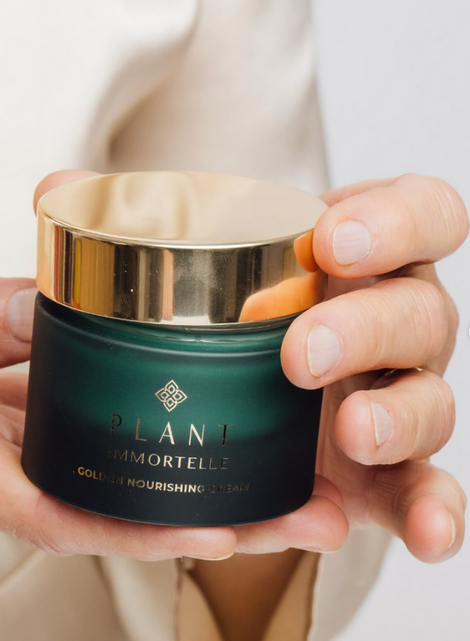
Take 10% off your first order
Enter the code below at checkout to get 10% off your first order